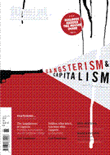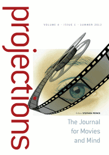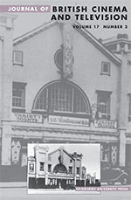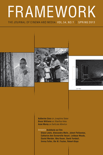
Short Film Studies
Scope & Guideline
Transforming Perspectives on Visual Storytelling
Introduction
Aims and Scopes
- Critical Analysis of Short Films:
The journal focuses on in-depth critiques of short films, examining narrative structures, aesthetic choices, and thematic content. - Interviews with Filmmakers:
It features conversations with filmmakers, providing insights into their creative processes, influences, and the challenges they face within the short film medium. - Exploration of Genre and Form:
The journal investigates various genres and forms of short films, including experimental, documentary, and narrative shorts, highlighting their unique storytelling techniques. - Cultural and Historical Contexts:
Short Film Studies contextualizes short films within broader cultural, social, and historical frameworks, analyzing how they reflect and influence societal issues. - Innovative Methodologies:
The journal employs diverse methodologies including textual analysis, visual studies, and ethnographic approaches to understand the impact of short films.
Trending and Emerging
- Cultural Specificity and Hybridity:
There is an increasing focus on genre hybridity and cultural specificity, as seen in studies addressing the intersection of different cultural narratives within short films. - Documentary and Realism:
A rising interest in documentary filmmaking and realist portrayals in short films reflects a broader societal engagement with authenticity and representation. - Intersectionality in Film:
Themes exploring race, gender, and class dynamics are becoming more prominent, showcasing the importance of intersectional analysis in understanding short films. - Ecological and Ethical Themes:
Emerging themes related to ecology and ethical storytelling indicate a growing awareness of environmental issues and social responsibility within short filmmaking. - Digital and Technological Innovations:
The impact of digital technologies on short film production and distribution is increasingly recognized, reflecting changes in how films are made, shared, and consumed.
Declining or Waning
- Traditional Narrative Structures:
There appears to be a decreasing focus on conventional narrative forms within short films, as contemporary works increasingly embrace non-linear and experimental storytelling. - Focus on Technical Aspects:
Previous emphasis on technical analysis, such as cinematography and editing techniques, has diminished, with more emphasis now placed on thematic and cultural analysis. - Genre-Specific Studies:
There is a noticeable decline in papers dedicated to specific genres, as the journal shifts towards more interdisciplinary and hybrid approaches to film analysis. - Historical Studies of Early Short Films:
Interest in the historical analysis of early short films is waning, possibly due to a shift towards contemporary works and current trends in short filmmaking. - Regional Film Studies:
The examination of short films from specific regions or countries has seen reduced attention, as the journal increasingly adopts a global perspective on film studies.
Similar Journals

Film International
Diving Deep into the World of Film and Its Narratives.Film International is a prominent journal dedicated to the exploration of film and its cultural, social, and artistic significance. Published by INTELLECT LTD, this journal serves as a platform for interdisciplinary studies in the field of film criticism, theory, and scholarship, contributing valuable insights from both established and emerging researchers. With an ISSN of 1651-6826 and an E-ISSN of 2040-3801, the journal is an essential resource for those engaged in the realms of communication, cultural studies, and visual arts, though it is currently classified in the lower quartiles of these fields (Q4). Noteworthy for its critical perspectives and diverse content, Film International enhances the dialogue surrounding cinematic practices and their impact on society. Researchers, professionals, and students can explore its rich assemblage of articles and reviews that reflect the evolving landscape of film studies, making it a significant addition to the academic community focused on the art of film.

Projections-The Journal for Movies and Mind
Decoding the Cultural Impact of Cinematic NarrativesProjections: The Journal for Movies and Mind is a leading scholarly publication dedicated to exploring the intricate relationship between cinema, cognition, and culture. Published by BERGHAHN JOURNALS, this journal has made significant strides since its inception in 2015, achieving impressive rankings in its fields, including a Q1 classification in both Cultural Studies and Visual Arts and Performing Arts for 2023. With an ISSN of 1934-9688 and an E-ISSN of 1934-9696, Projections engages the academic community by delivering innovative research that scrutinizes how films influence and reflect human thought processes and societal structures. While it operates outside the Open Access model, the journal offers critical insights and diverse perspectives that are essential for researchers, professionals, and students alike. With its remarkable impact factor and solid reputation in the arts and humanities domain, Projections serves as an indispensable resource for those dedicated to understanding the psychological and cultural implications of cinematic narratives.

Studi Pasoliniani-Rivista Internazionale
Engaging with Pasolini: A Multidisciplinary PerspectiveStudi Pasoliniani-Rivista Internazionale is a distinguished academic journal dedicated to the exploration of the works and influence of Pier Paolo Pasolini, an eminent figure in Italian literature and cinema. Published by Fabrizio Serra Editore in Italy, this journal adheres to a multidisciplinary approach that encompasses critical analyses in linguistics, literature, and literary theory, making it a valuable resource for researchers and scholars seeking to deepen their understanding of Pasolini's legacy. Currently, Studi Pasoliniani holds a Q4 quartile ranking in both Linguistics and Language and Literature and Literary Theory, reflecting its commitment to fostering scholarly discourse within these fields. Although the journal does not operate under an open access model, its publication from 2019 to 2023 assures that its content remains relevant and beneficial for academic inquiry. Researchers, professionals, and students alike will find this journal an indispensable venue for engaging with contemporary interpretations and critiques of Pasolini's oeuvre, amidst the rich cultural and historical contexts that inform his work.

Journal of British Cinema and Television
Charting the Evolution of British Cinema and TelevisionJournal of British Cinema and Television, published by Edinburgh University Press, is a leading academic journal that explores the dynamic interplay between British cinema and television within the context of cultural studies. With an ISSN of 1743-4521 and E-ISSN of 1755-1714, this journal provides a platform for scholarly discourse, enabling researchers, professionals, and students to engage with critical analyses of screen media and its socio-political impact. As a Q3 journal in Communication and a Q1 journal in Visual Arts and Performing Arts for 2023, it occupies an influential position, particularly in the Arts and Humanities, where it ranks in the 90th percentile. The journal's scope encompasses a wide range of topics, from historical perspectives to contemporary practices in British visual culture, making it essential reading for anyone interested in the evolution and significance of screen studies in the UK. While it is not an open-access publication, the rigorous peer-review process ensures high academic standards and contributes to its esteemed reputation in the field. As it continues to converge from 2004 to 2024, the Journal of British Cinema and Television remains a vital resource for those seeking to deepen their understanding of British media and its global resonance.

Framework-The Journal of Cinema and Media
Unveiling critical insights in media culture.Framework: The Journal of Cinema and Media is a prominent academic journal published by Wayne State University Press, focusing on the dynamic fields of cinema studies and media theory. With an ISSN of 0306-7661 and an E-ISSN of 1559-7989, it serves as a key platform for researchers, professionals, and students to explore critical issues in media culture, film theory, and the intersection of digital technologies and narrative. Although it does not currently offer open access, the journal maintains a reputation for rigorous scholarship and thought-provoking content, providing insights that challenge conventional understandings of media and its impact on society. Published in Detroit, MI, Framework continues to engage with contemporary debates and innovative practices in cinema and media, making it an essential resource for those dedicated to advancing research in these vibrant disciplines.

HENRY JAMES REVIEW
Unraveling the Threads of American LiteratureThe HENRY JAMES REVIEW, published by Johns Hopkins University Press, is a prominent academic journal dedicated to the exploration and critique of the literary works and legacy of renowned American author Henry James. Established to foster scholarly discourse, the journal aims to encourage innovative research, analysis, and interpretation within the fields of Literature and Literary Theory. Though it holds a Q4 category ranking in its domain as of 2023, the review plays a crucial role in providing a platform for dialogues about James's impact on modern literature and critical thought, especially as it converges from 2002 to 2024. With an ISSN of 0273-0340 and an E-ISSN of 1080-6555, the journal is accessible for academics, students, and professionals seeking to deepen their understanding of Jamesian themes, creative processes, and narrative structures. While currently not Open Access, the journal remains an essential resource for anyone engaged in literary studies, reflecting ongoing scholarly engagement with one of America's most esteemed authors.

SIGHT AND SOUND
Advancing Film Studies with Insightful AnalysisSIGHT AND SOUND is a prestigious journal published by the British Film Institute, dedicated to the exploration of cinema and its cultural significance. With an ISSN of 0037-4806 and an E-ISSN matching the same, this journal has been a critical platform for film studies since its inception, contributing valuable insights to the realms of visual arts and performing arts. Despite its discontinuation in the Scopus database post-2021, SIGHT AND SOUND commands respect within its field, currently holding a Q3 rank among Visual Arts and Performing Arts journals. Operating from 21 Stephen Street, London W1P 1PL, England, it serves as a vital resource for researchers, professionals, and students looking to deepen their understanding of film theory, critique, and history. While access to its articles is not open, the journal continues to influence the discourse in film studies, making it a significant asset in academic and professional circles.

MILLENNIUM FILM JOURNAL
Diving Deep into the Complexities of Visual Storytelling.MILLENNIUM FILM JOURNAL, published by MILLENNIUM FILM WORKSHOP INC, stands as a pivotal platform for exploration and discourse within the realm of film studies. With its ISSN 1064-5586, the journal has been noteworthy in delineating the complexities of visual arts and performing arts, contributing significantly to academic scholarship between the years 2009 to 2016, and in 2018. Though its coverage has been discontinued in Scopus, the journal has attained a respectable position within its category, ranking #320 out of 502 in the Arts and Humanities field. Researchers, professionals, and students alike are invited to engage with interdisciplinary discussions that illuminate the cultural and theoretical dimensions of cinema. While currently not offering open access options, the journal continues to serve as a vital resource for those deeply invested in the study of film, making it a respected voice in visual arts and performance research.

CINEASTE
Unveiling the Rich Tapestry of Cinematic DiscourseCINEASTE is a distinguished journal dedicated to the critical exploration of cinema, providing a platform for scholars, filmmakers, and enthusiasts to engage with the complexities of film studies. Established and published by CINEASTE, this periodical serves as a vital resource for those interested in the intersection of visual arts and performing arts. Although it is not currently offered as Open Access, CINEASTE remains a respected publication within the academic community, having been indexed in Scopus until 2016. With an ISSN of 0009-7004, it has established itself despite its lower ranking in the arts and humanities category, reflecting the competitive nature of this field. Researchers, students, and professionals alike will find ample opportunities for insightful discussion and scholarly contributions to the evolving landscape of cinematic discourse. CINEASTE continues to uphold its mission of enhancing film scholarship, making it a crucial reference point for anyone eager to deepen their understanding of cinema's artistic and cultural significance.

ANQ-A QUARTERLY JOURNAL OF SHORT ARTICLES NOTES AND REVIEWS
Exploring the Depths of Culture and LiteratureANQ: A Quarterly Journal of Short Articles, Notes and Reviews is a distinguished publication hosted by Routledge Journals, Taylor & Francis Ltd, and plays a pivotal role in the fields of Cultural Studies, History, and Literature and Literary Theory. Since its inception in 1988, the journal has fostered a dynamic exchange of ideas, featuring concise articles that provide insightful analyses, reviews, and commentary on contemporary issues and historical perspectives, making it an invaluable resource for scholars and practitioners alike. With an impressive ranking within the 89th percentile in Literature and Literary Theory and consistently recognized in the Q2 and Q3 quartiles across key categories, ANQ stands as a testament to rigorous scholarship and innovation in research. While the journal operates under a traditional subscription model, its contributions significantly enrich the academic conversation, fostering insights that resonate across disciplines. Located in Milton Park, Abingdon, United Kingdom, ANQ invites researchers, professionals, and students to delve into its treasure trove of short articles and reviews, thereby enhancing their understanding and appreciation of cultural narratives and literary discourse.